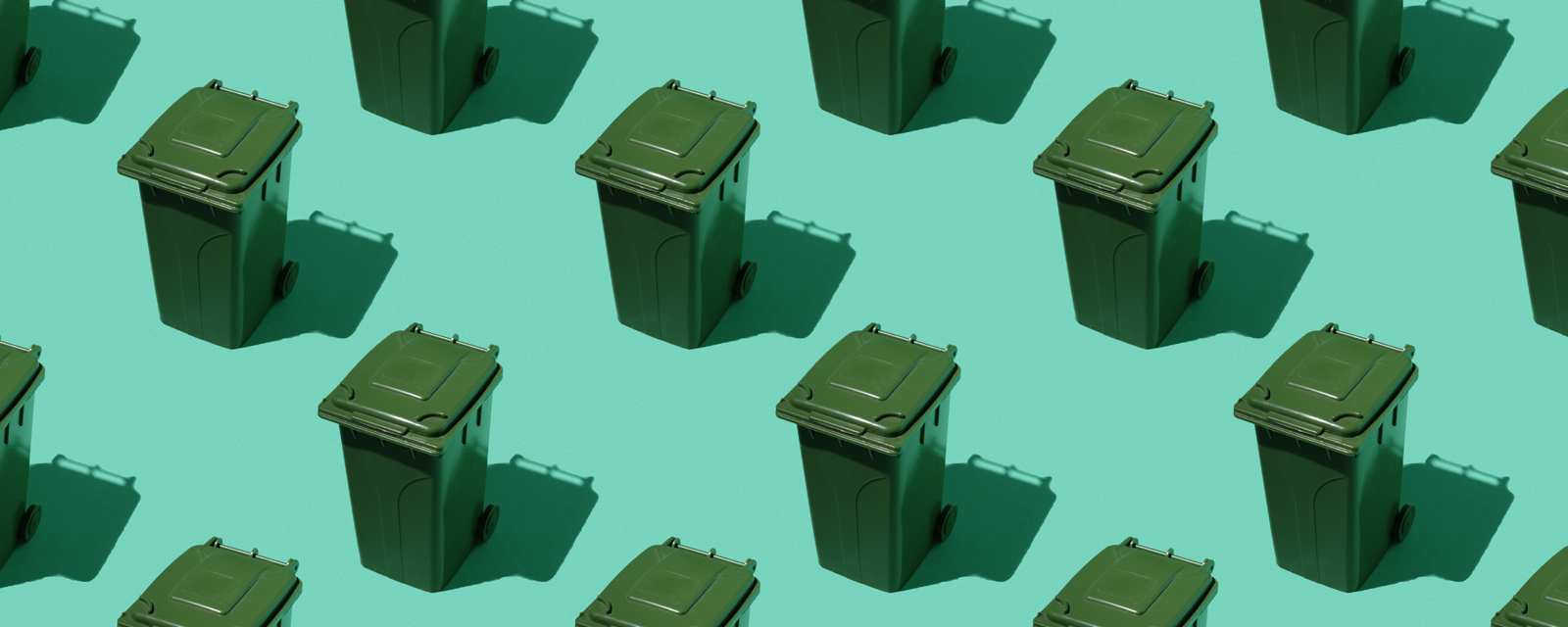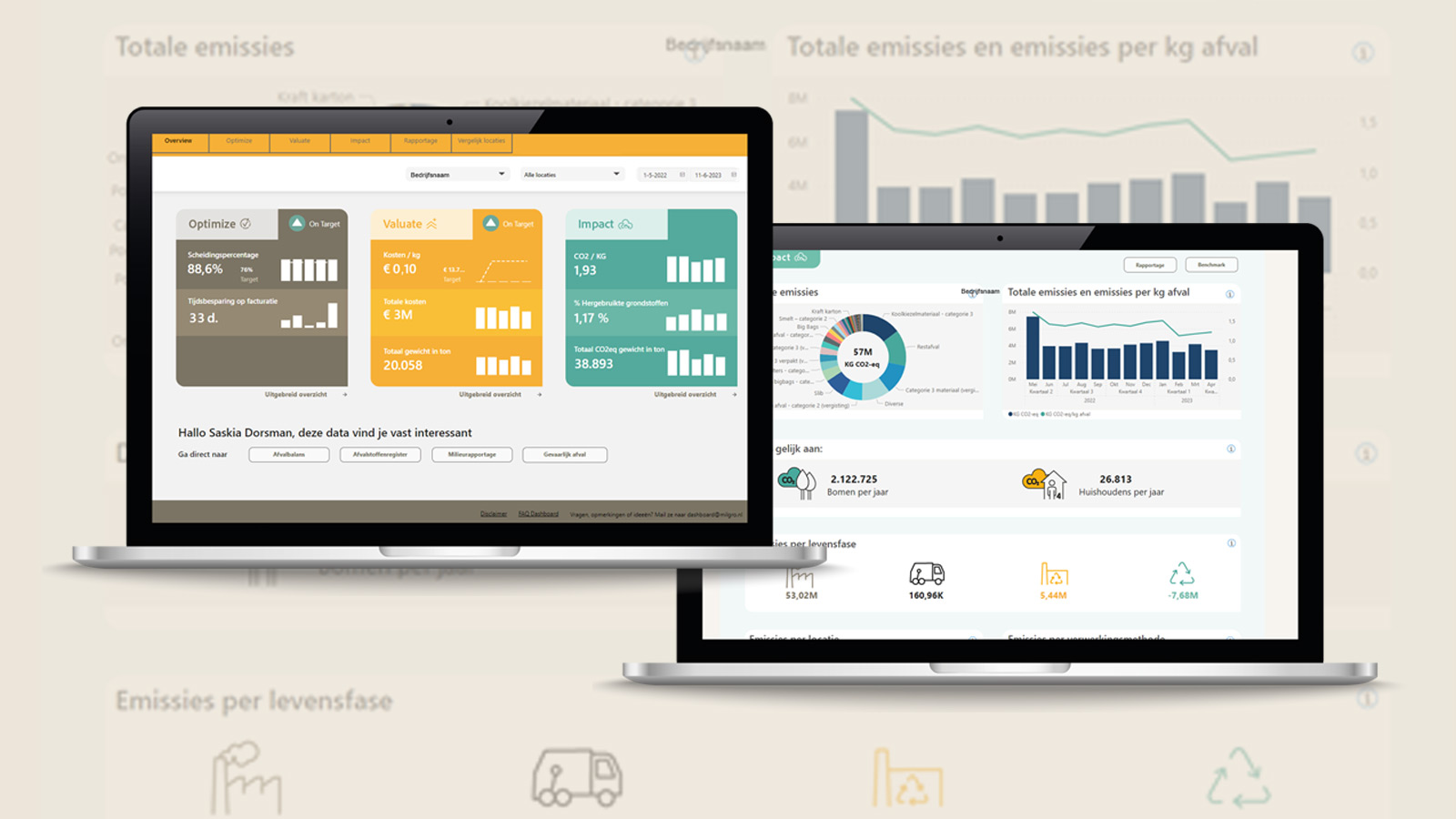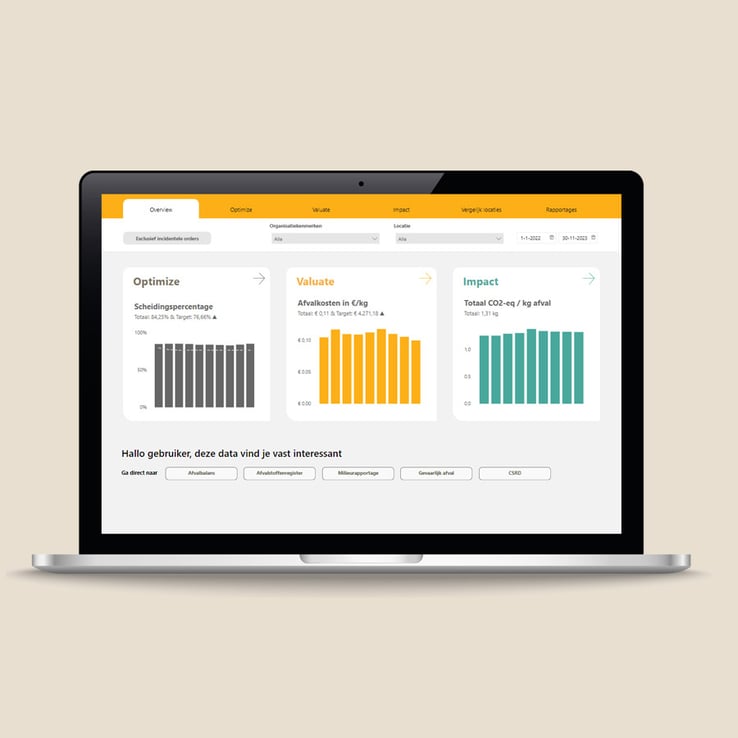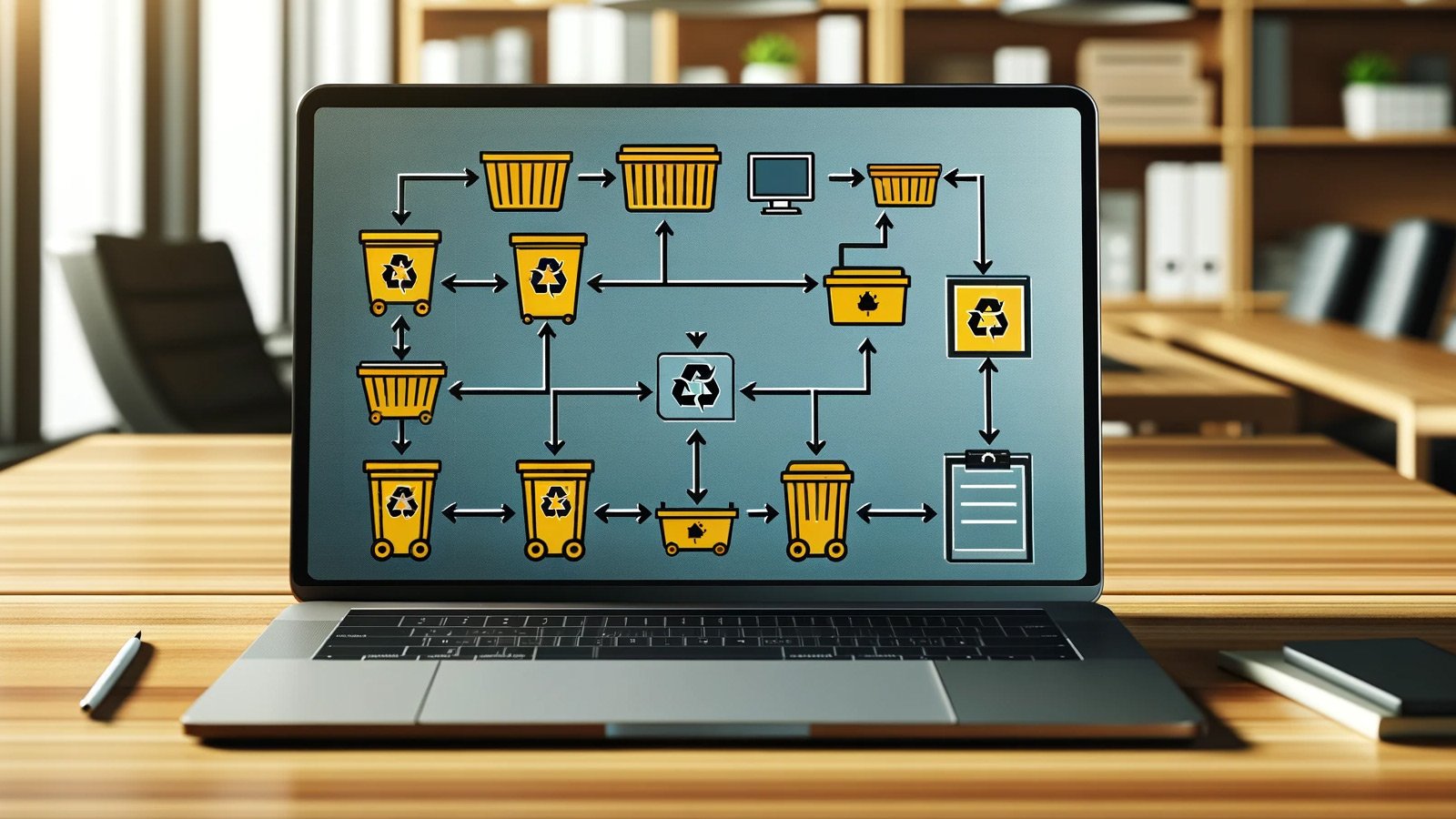In today's economy, sustainability is no longer an option, but a necessity. Companies are under increasing pressure to reduce their ecological footprint and contribute to a circular economy. The Openbare Vlaamse Afvalstoffenmaatschappij (OVAM) developed MATIS: the Materials Information System. In this article, we dive deeper into the benefits of MATIS. We also explain why Milgro welcomes this important development and how we can ease your administrative burden.
What is MATIS?
The innovative MATIS system has been introduced by OVAM. It requires companies in Belgium since Jan. 1, 2024, to record their waste streams in detail. This digital platform is an essential tool for mapping the origin, destination and treatment of waste. The goal? To create a transparent and traceable waste chain that contributes to more sustainable business.
MATIS and the waste register
The focus of MATIS was initially on household waste collected through the municipal circuit. Over the next two years, the system will be expanded to include the collection and processing of all types of waste and secondary raw materials from businesses.
Thus, MATIS should eventually map the entire chain: from raw material to the end-of-life trajectory of products. When all this information is viewable in the Materials Information System and the system continues to develop, the waste register will be dropped in the future. The waste register is the legally required company record in which separated waste streams and waste processors are kept.
The benefits of MATIS
MATIS offers several environmental benefits. We list the most important three for you.
Less waste
MATIS allows Belgian companies to optimize their waste management. It provides insight into the materials that companies use and produce. This allows them to use raw materials more efficiently. This directly results in less waste and therefore less waste.
Stimulate recycling
Another significant benefit of MATIS is the promotion of recycling. By tracking the processing chain of materials, companies can recycle more materials. This helps reduce landfill or incineration of waste.
Reduction of CO2 emissions.
Less waste and higher recycling rates lead to a reduction in CO2 emissions. This makes MATIS an important player in the transition to a more sustainable economy with less environmental pollution.
The Belgian MATIS versus the Dutch MIS
The Netherlands has a similar Materials Information System to the Belgian MATIS, namely the MIS. Yet Belgium is leading the way in this development. Several factors play a role in this.
First, the mandatory nature of MATIS leads to higher data quality and greater impact on environmental performance. In the Netherlands, far fewer companies use the MIS because participation in it is voluntary.
In addition, MATIS has a broader scope than MIS. For example, MATIS not only tracks material flows from companies, but also from consumers. This creates a much more complete picture of material flows in Flanders. Waste and recycling can be stimulated at a higher level.
Finally, MATIS has convenient links to other systems, such as the Flemish Building Materials Register. By combining data from different sources, an even better understanding of material flows emerges.
Why Milgro considers MATIS important
Understanding material flows helps to keep raw materials in the chain as long as possible. MATIS contributes directly to this. For example, it forms a practical application of the concept of industrial symbiosis. This optimizes the exchange of materials between companies in order to make the best possible use of raw materials.
Milgro is continuously working towards a circular economy. We believe that transparency is a crucial condition for effective chain cooperation. MATIS makes an important contribution to this.
Nevertheless, it can be a complex task to meet the requirements of MATIS as a company. Especially when you collaborate with multiple processors, each with their own flow of information. That's where Milgro comes in. We take all the administrative hassle off your hands. That means one point of contact, one invoice and one clear dashboard. Despite the fact that you work with multiple processors.
Milgro and MATIS: a worry-free combination
Milgro's dashboard offers clients insight into waste streams and processing methods. This leads to better control of waste. Within our extensive network, we always find the best processing method. This way we minimize the waste of raw materials.
The big advantage for you as a company? As a Milgro customer, you enjoy a streamlined process. We bring all material flows together in a clear dashboard. You will receive one invoice, regardless of the number of service providers.
Getting started with efficient waste management
MATIS represents an important step forward in waste management in Belgium. It offers companies the opportunity to improve their waste management, recycle more and reduce their CO2 emissions. For Milgro customers, complying with MATIS is no longer a hassle. With an integrated approach and a single invoice, meeting MATIS requirements becomes a piece of cake. Interested? Then contact us directly.
Stay informed
Stay up to date on all new developments? Follow us on LinkedIn or Instagram. Or subscribe to the newsletter. Are you curious about what Milgro can do for your operations and waste process? Contact us.














